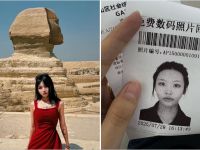An Islamic financial system which discourages speculation could benefit developing nations more than the current Western system, senior Islamic bankers said Monday, February 19. "The financial crisis in Southeast Asian countries indicated that the financial systems in our (Islamic) countries are highly fragile and vulnerable to external shocks and excessive financial flows," said Mohsen Nourbaksh, governor of Iran's central bank. "Islamic banking has a lot to offer in this respect," he told a three-day conference on Islamic banking and finance.
Imtiaz Alam Hanfi, chairman of the Commission for Transformation of Financial Systems in the State Bank (central bank) of Pakistan, said Islamic banking was fairer and designed to guard against speculation. "... contemporary financial system is fragile and unpredictable, with adverse consequences particularly for the developing and for the economically weaker countries," he said.
"Islamic financial system that is based on real transactions without speculative activity, can be more stable with increased allocative efficiency and encouragement to genuine entrepreneurship." The payment of interest is banned under the Islamic banking system, as shariah law forbids usury. Hanfi urged the Organization of the Islamic Conference to lead in developing a uniform intrepretation of the shariah for processes, financing modes and regulatory standards.
Malaysian Finance Minister Daim Zainuddin in his opening speech urged Islamic banks to consolidate. "Up to now, no one Islamic bank has made the list of top 100 largest banks in the world by asset size or capital strength... merger must be another alternative for we must not be marginalized," he said. Although Islamic countries are home to one-fifth of the world's population, Daim said, their total amount of funds accounted for only about 10 percent of global funds.
"Large amounts of private assets belonging to Muslims are still nesting with the traditional bankers," he said, adding Islamic countries must foster greater cooperation and "not guard their turf enviously." Daim said Malaysia, along with a group of central banks in Moslem countries and the Islamic Development Bank, was working on an International Islamic Financial Market to address liquidity needs, and to broaden finance, investment and products globally. He later launched Malaysia's Islamic banking and finance institute, which would conduct research and training.
Abdul Rahim Hamdi, chairman of Sudan's Financial Investment Bank, said there were now some 180 Islamic institutions managing more than $200 billion in 30 countries including the United States and Russia. The Islamic system has developed into a "credible banking alternative" as it was socially responsible and versatile in its modes of financing and pricing, he said. "Islamic banking is no longer a freak or niche banking." —(AFP)
© Agence France Presse 2000
© 2001 Mena Report (www.menareport.com)







